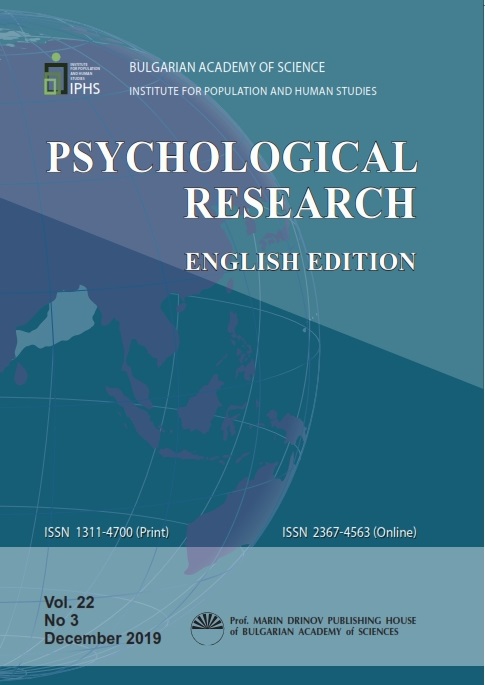Strategic Orientations of Managers in IT Companies: Evidence from Bulgaria and Finland
Strategic Orientations of Managers in IT Companies: Evidence from Bulgaria and Finland
Author(s): Tsvetelina PanchelievaSubject(s): Social Sciences, Psychology
Published by: Институт за изследване на населението и човека - Българска академия на науките
Keywords: management; strategic orientations; IT organizations; cross-cultural comparison.
Summary/Abstract: The purpose of the article is to reveal what are the leading strategic orientations of the managers in IT companies in Bulgaria and to compare them with the results of managers from a research conducted in Finland. Five types of strategic orientations – customer, technology, learning, and entrepreneurship orientations, and organizational performance – are evaluated in terms of a scale initially developed by Henri Hakala (2011) for this purpose. The two samples are generally similar, with only small differences in the average values of the orientations. The findings also indicate that the profile of the Bulgarian sample is more balanced in respect to orientations than the Finnish one. The learning orientation has the highest measured values among both samples, with the customer and technology orientations displaying the greatest differences. The data provided by the study concerning management practices in IT companies are useful for organizational managers when defining and/or changing organizational strategies, cultures, or structures. HR professionals and consultants may also avail themselves of our findings when planning training programs for employees at all levels of a given organizations. This study makes a unique contribution to comparative analyses of strategic orientations in two different locations (Bulgaria and Finland) insofar as it employs Hakala’s scale for the first time in this type of research in Bulgaria, thereby providing valuable information for managers, researchers, university professionals, and students.
Journal: Психологични изследвания
- Issue Year: 22/2019
- Issue No: 3
- Page Range: 789-798
- Page Count: 10
- Language: English

